Tanemura Soke chose Mangetsu (満月) as the name for our school, which in Japanese means Full Moon. Dojo (道場) means a place for practicing the way, but referring to a school or a place for practicing any form of art.
Mangetsu Dojo is a member of these organizations:
• Amatsu Tatara World Federation
• Genbukan World Ninpo Bugei Federation
• Kokusai Jujutsu Renmei
• Japan Kobudo/Koryu World Federation
About us - Purpose and aim of Mangetsu Dojo
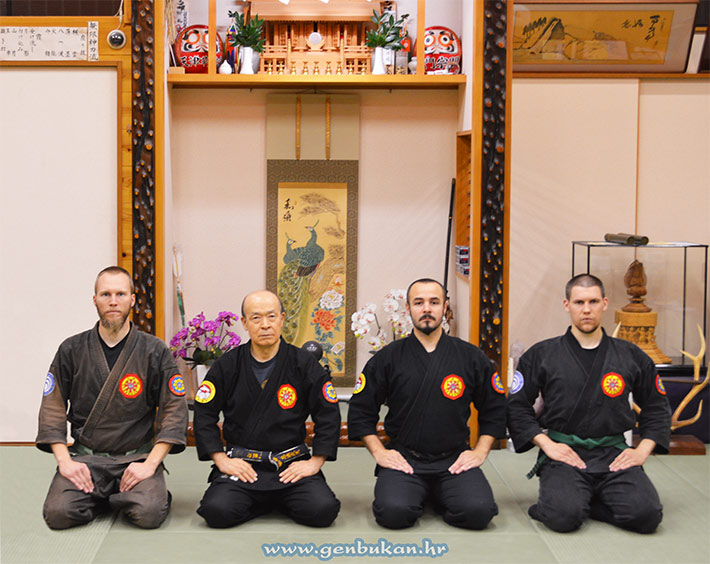
The purpose of this club is to sincerely practice martial arts given by the programs for all systems by Tanemura Shoto Sensei. Mangetsu Dojo is guidance to all students of Genbukan martial arts systems, and preparation for participation on seminars held around the world and eventually preparing for training in Japan in Honbu Dojo. Mangetsu Dojo is under direct tutorage of Honbu Dojo in Japan.
The aim of establishing the Dojo is promoting, developing, studying, training, preserving and perfecting traditional martial arts (Kobudo), history, culture, philosophy, humanism, spirituality, etc. The intention is that Dojo teaches and cares for their members, not only in terms of taught self-defense techniques, but in traditional spiritual teachings also, manners and proper way of conduct, ethical and moral values with special emphasis on stopping any form of violence in everyday society, so that members can experience a good life in tune with the society and nature.
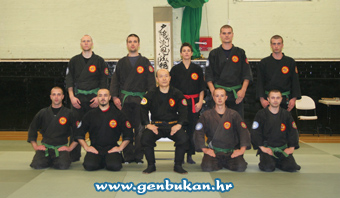
Ninpo Bugei
In Mangetsu Dojo basic teachings results from the martial arts called Ninpo Bugei. Federation or the school is called Genbukan, together with Kokusai Jujutsu Renmei federation. It is a martial arts school with the founder whose name is Tanemura Shoto Sensei, and he is successors of Takamatsu Sensei line and other Grandmasters. We do not practice only one style of martial arts, for an example Karatedo or Judo, but styles from the whole history of Japan and their regions, now days called Kobudo or Koryu.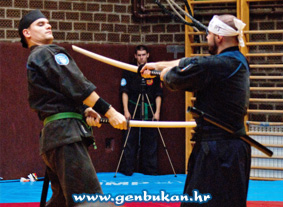
Bugei skills are nearly extinct today, and were comprised by 18 categories or parts. In Genbukan Ninpo Bugei there are 36 categories. 18 of them are exoteric (external or public) and they are called Bugei Juhapan, in witch every samurai where taught, for an example unarmed fighting, fencing, archery, tying ropes, skills with spear, bow and arrow skills while riding horse etc. The other 18 categories are called Ninja Juhakkei witch are esoteric (internal or secret), and where taught only to officials and clan or family members. Ninja Juhakkei has disciplines of spiritual refinement (Seishin Tekikyoyo), the secret techniques of unarmed fighting together with all secret weapons skills, medicine, strategy, astrology, geography etc. Three basic parts that we practice on trainings by separate curriculum are:
1) Tai-Jutsu (Body techniques),
2. Bo-Jutsu (Staff techniques) and
3. Biken-Jutsu (Sword techniques).
Jujutsu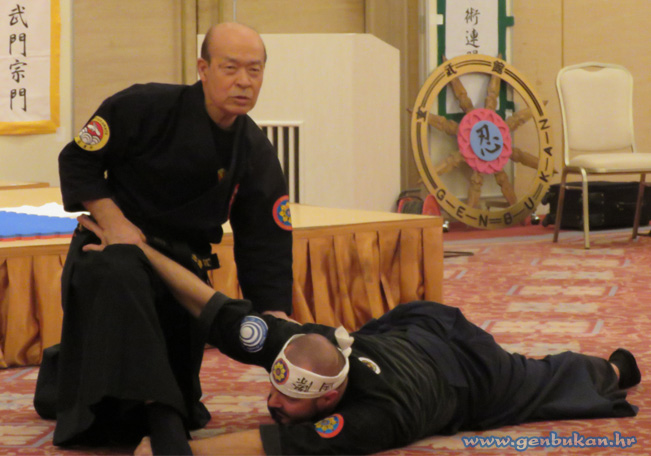 In Kokusai Jujutsu Renmei (International Jujutsu Federation) we practice various styles of traditional Jujutsu with the purpose of preserving and transmitting tradition. We exercise in traditional outfits, rituals before the fight and in original spirit in a same way it was practiced more than 500 years ago. These techniques are true battlefield techniques with the roots we can trace back to the period of the gods, although most of the styles that are practiced today started in the fifteenth century. GWNBF and KJJR are using standard Kyu / Dan ranking system, but with permission after 7th Kyu student can start to study traditional Ryuha styles of which Tanemura Sensei is Soke, and to grade in the traditional Menkyo system of transmission, starting with Kirigami and then from Shoden to Menkyo Kaiden rank.
In Kokusai Jujutsu Renmei (International Jujutsu Federation) we practice various styles of traditional Jujutsu with the purpose of preserving and transmitting tradition. We exercise in traditional outfits, rituals before the fight and in original spirit in a same way it was practiced more than 500 years ago. These techniques are true battlefield techniques with the roots we can trace back to the period of the gods, although most of the styles that are practiced today started in the fifteenth century. GWNBF and KJJR are using standard Kyu / Dan ranking system, but with permission after 7th Kyu student can start to study traditional Ryuha styles of which Tanemura Sensei is Soke, and to grade in the traditional Menkyo system of transmission, starting with Kirigami and then from Shoden to Menkyo Kaiden rank.
Koryu Karate
Along with all this, as a part of the system, there is a Koryu Karate which we also practice, the old style of Chinese fist. This is a special system that is based on techniques of punching, blocking, attacking vital points and breaking bones. Koryu Karate is very useful for self-defense because it was created through true case fighting experiences and only those techniques that have caused certain victory where kept as a technique. Tanemura Soke teaches this Koryu Karate system as Danko-Jutsu, which means a complete defense against the opponent's techniques. Koryu Karate system is based on Ryuha that in a best way represents how Takamatsu Sensei truly fought while he was alive. Today Tanemura Sensei is completing the mission that Takamatsu Sensei had no time to complete, and that is to preserve and teach the next generation this highest Karate system that is based on Kijin Chosui Ryu Daken Taijutsu, Gikan Ryu, Tenshin Ryu Kenpo, etc.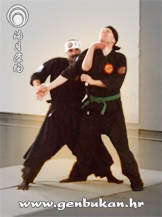
Chugoku Kenpo
Tanemura Sensei is also Grandmaster for Chinese martial arts in Japan, which he learnt from Sato Kinbei Sensei and other Grandmasters. So through a unique curriculum we are studying Chinese martial arts: Pa Qua, Chin Na and Chi Kung. Pa Qua is a special art based on Taoist philosophy on circular changes of dual cosmic forces. Chin Na is a Chinese art that is similar to Japanese Jujutsu also based on joint locks, choking, immobilizing and controlling the opponent. Chi Kung is the internal art dealing with subtle energies known as Ki or Chi.
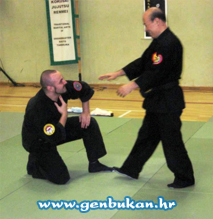
Amatsu Tatara Bumon Shumon
And at last but most important, Tanemura Sensei is successor of one of the oldest scrolls in the history of Japan, which dates 700 years BC. They are called Amatsu Tatara Bumon Shumon. These are the highest and secret teachings about martial sciences and spiritual sciences. Originally, this knowledge was intended only for the Grandmaster or special priests. But today we are enabled to grade and progress in these traditional spiritual teachings of Amatsu Tatara from beginner to master level.




